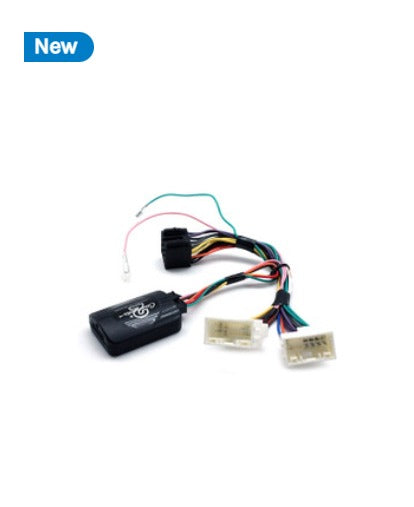Hyundai owners and enthusiasts should familiarize themselves with this critical part of Hyundai vehicle ownership if they plan to add aftermarket audio/electronic components to their Hyundai cars; with its ISO Wiring Control Interface explicitly designed for Hyundai models, installing aftermarket components seamlessly. Understanding its role and functionality is vital to owning or admiring any Hyundai vehicle.
The Role of ISO Wiring Control Interface in Hyundai Vehicles
Hyundai vehicles utilize an Aerpro CHHY8C Steering Wheel Control Interface as an integral element. This vital interface enables aftermarket devices, like audio systems and navigation units, to integrate smoothly into their native electronic systems. This integration enhances vehicle functionality while guaranteeing all components communicate without compatibility issues.
Analysing Hyundai Factory Wiring Vs ISO Interface
Comparing Hyundai factory wiring and an ISO Wiring Control Interface offers valuable insights into efficiency, performance and user experience. This comparison helps readers appreciate why an ISO interface could transform their vehicle.
Accumulate Relevant Documents
When gathering all the pertinent information and documentation regarding Hyundai factory wiring and ISO interface, including wiring diagrams, schematics and technical specs, ensure all essential paperwork and data have been collected before proceeding further with installation or modification work.
Compare Wiring Schematics
Evaluate and compare the wiring schematics from the Hyundai factory wiring system and ISO interface regarding colour scheme, connections and components to identify any differences or similarities in these diagrams.
Functional Testing
Conduct functional tests on the ISO interface in conjunction with Hyundai factory wiring to verify it works as intended and safely. Likewise, make sure all essential electrical systems and components perform as anticipated.
Determine Compatibility Issues
Identify discrepancies between Hyundai factory wiring and ISO interface and any necessary modifications or adjustments for seamless integration between these systems. Document any required changes and/or adjustments to achieve seamless operation between both systems.
Why Is ISO Wiring Necessary for Hyundai Vehicles?
ISO wiring is crucial to Hyundai vehicles to ensure compatibility with aftermarket audio and electronics, simplify installation and reduce risk to their electrical system. Standardized connections simplify installation and protect its functionality for longer.
Troubleshooting Common Issues with ISO Wiring Interfaces in Hyundai
To troubleshoot common issues with ISO wiring interfaces in Hyundai vehicles, follow these steps:
- Check Wiring Connections and Compatibility: Inspect all wiring connections for loose or disconnected wires.
- Verify Compatibility: Verify ISO Interface compatibility between your Hyundai model and aftermarket equipment.
- Test Electrical Components: Perform functional checks of all electrical components to identify potential power, signal or grounding problems.
- Inspect Fuse and Relay: To ensure their integrity remains undisrupted by ISO interface requirements.
- Consult Documentation: Referring to your user manual or manufacturer's instructions can help address specific issues. Seek
- Professional Assistance: For those whose problems continue, seeking expert diagnosis and repair from a certified automotive technician might provide more incredible answers and solutions.
Conclusion
Hyundai Legacy and ISO Wiring harnesses Control Inter face, reflecting upon their impact and significance for vehicle connectivity and control in general. The Hyundai legacy continues with ISO Wiring Control Interface's positive contributions while looking forward towards its potential relevance to vehicle control technology advancements in future vehicles.

